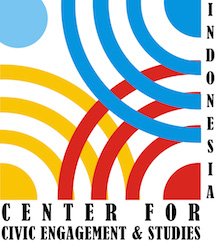[lead]
The Roles of Civil Society and Media
[/lead]
Today the roles of civil society and media almost cannot be separated. Civil societies in Indonesia keep fighting for the principles of good governance for putting the foundation of democratization process. Meanwhile, media that are often called as the fourth pillar in democracy (the other three pillars are civil society, government and private sector) struggle to build transparency and accountability in steering the wheels of good government on the aspects of politics, economy, etc. In fact, the process of advocacy for transparency and access to information by media has come to the level of community (CRI, 2012).
Media nowadays have many faces like civil societies, moreover when they are related to the issue of ownership. Media no longer can be fully considered as watch dog in the process of building transparency and accountability. Dominant ownership of media can change the direction of the ideal missions, furthermore if the media are parts of industry (in which the companies owning the media certainly must maximize their profits). In short, the two pillars are very dependent on the engine/machine used. The variety of machine pushing the movement of media sector has been apparent now. Various alternative media and social media have become parts of the movement of realizing good governance.
Civil societies now have many faces and types, ranging from those vis a vis dealing with the State to those acting as collaborative parts of the government system. The current trending role of civil societies is that they collaborate with the government as critical partners, either at the national, provincial or district level. The struggles of civil societies have been able to make milestones as stated above. However, it must be admitted that their struggles are still far from success. Along with media, they still have to keep fighting to increase the quality of intended governance as well as to lead the process of democratization for achieving the ideals of the State.
In addition to the roles of civil society and media, the other arena that can be used to build alternative space for democracy is art. In some initiatives having been done, it has been proved that art can be medium of expression to push social change or at least to build public awareness of social discrepancy, corruption in bureaucracy, and other fields.
